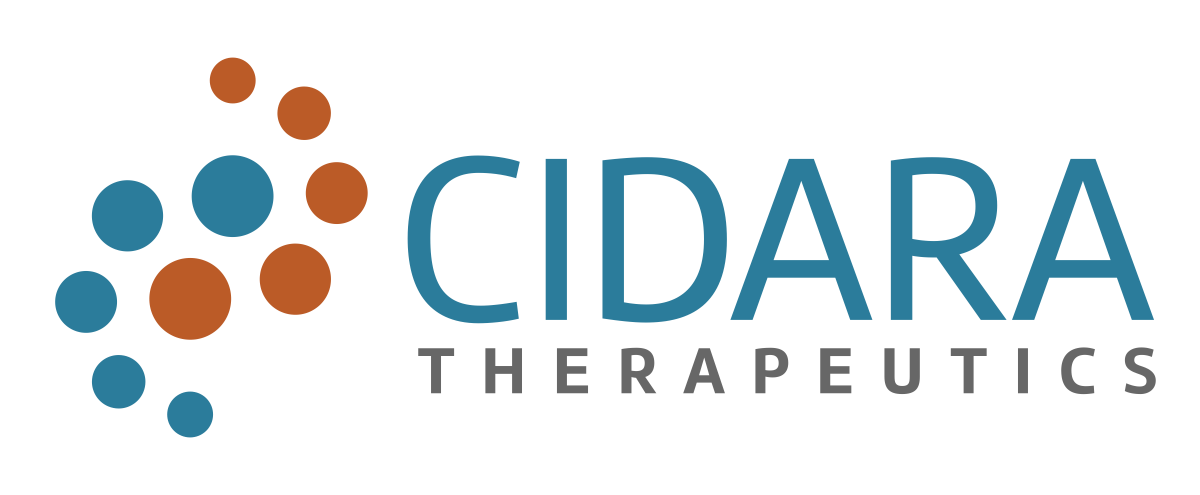Data published in Antimicrobial Agents and Chemotherapy demonstrate
CD101 has superior tissue and lesion penetration compared to the current
standard of care
SAN DIEGO –
Cidara Therapeutics, Inc. (Nasdaq:CDTX), a biotechnology company
developing novel anti-infectives including anti-infective
immunotherapies, today announced publication
of data from an in vivo study investigating the deep tissue
distribution of CD101, Cidara’s next-generation echinocandin agent,
compared to the current first-line treatment, micafungin, in the setting
of intra-abdominal candidiasis (IAC), one of the most lethal forms of
invasive candidiasis. The data were published online in Antimicrobial
Agents and Chemotherapy (AAC), a journal of the American Society of
Microbiology.
While the Infectious Diseases Society of America (IDSA) recommends
currently marketed echinocandins as first-line therapy for most types of
invasive candidiasis, failure rates of approximately 40 percent and
increasing drug resistance have raised concerns about insufficient drug
penetration during therapy for IAC. Yanan Zhao, et. al. coordinated and
conducted the CD101 IAC study with support from the National Institutes
of Health (NIH) to help address this significant clinical need.
The study is the first to use MALDI-MS imaging, a powerful tool that
enables investigators to acquire molecular information about drug
distributions in tissues, as well as drug quantification methods, in a
clinically relevant mouse intra-abdominal abscesses model. It compared
single-dose treatments of CD101 to multiple-dose treatments of
micafungin at doses that approximated human plasma exposures for each
drug at their expected or FDA-approved clinical dose. Results show that
CD101 had a dose-dependent four-to-six-fold superior penetration into
infectious lesions days after the single CD101 dose as compared to daily
micafungin. Importantly, CD101 accumulated at levels that would be
expected to prevent mutations leading to antifungal resistance.
“The results from this cutting-edge study showcase the potential
advantages of CD101 as compared to currently marketed antifungals to
effectively treat an infection for which patients and medical
professionals desperately need new treatment options,” said Jeffrey
Stein, Ph.D., president and chief executive officer of Cidara. “The
investigators at PHRI, Rutgers University and University of Pittsburgh
should be commended for advancing antifungal drug research with a highly
novel and clinically relevant approach in this study. These findings are
especially timely given the current outbreak of drug-resistant Candida
auris, which has a reported mortality rate as high as 60 percent.”
“The approximately 40 percent failure rate experienced by patients with
invasive candidiasis may be related to findings that current
echinocandin therapies cannot deliver sufficient concentrations to
infection sites,” said David Perlin, Ph.D., executive director and
professor, Public Health Research Institute (PHRI), New Jersey Medical
School, Rutgers Biomedical and Health Sciences, and senior author of the
AAC paper. “The in vivo data published in AAC confirm the
potential of CD101 as a future treatment option for patients with IAC
because of the extraordinary tissue penetration at the site of
infection.”
About Fungal Infections
Approximately 97,000 Americans die from hospital-related fungal
infections each year and 90 percent of these infections are caused by
two common fungi, Candida and Aspergillus. The emergence
of a new and virulent fungal infection called Candida auris (C.
auris) is also a growing public health concern due its resistance to
existing antifungal agents. As of July 2017, the Centers for Disease
Control and Prevention (CDC) reports that C. auris has been
identified in more than 200 patients in the United States. Cidara
is currently evaluating CD101 in C. auris, in addition to multiple,
other invasive fungal infections.
About Cidara Therapeutics
Cidara is a clinical-stage biotechnology company focused on developing
new anti-infectives that have the potential to transform the standard of
care and save or improve patients’ lives. The company is currently
advancing its novel echinocandin antifungal, CD101 IV, through Phase 2
and developing CD201, its bispecific antibiotic immunotherapy, for the
treatment of multi-drug resistant Gram-negative bacterial infections.
CD101 IV has improved pharmacokinetics compared to existing
echinocandins and has the potential for expanded utility across patient
settings. CD101 IV is the only once-weekly product candidate in
development for the treatment and prevention of life-threatening
invasive fungal infections. CD201 is the first drug candidate selected
from Cidara’s novel Cloudbreak™ platform, the first immunotherapy
discovery platform designed specifically to create compounds that direct
a patient’s immune cells to attack and eliminate bacterial, fungal or
viral pathogens. Cidara recently received a grant for up to $6.9 million
from CARB-X (Combating Antibiotic Resistant Bacteria Accelerator) to
advance the development of CD201. Cidara is headquartered in San Diego,
California. For more information, please visit www.cidara.com.
Forward-Looking Statements
Statements contained in this press release regarding matters that are
not historical facts are “forward-looking statements” within the meaning
of the Private Securities Litigation Reform Act of 1995. Because such
statements are subject to risks and uncertainties, actual results may
differ materially from those expressed or implied by such
forward-looking statements. Such statements include, but are not limited
to, statements regarding the effectiveness, safety, and other attributes
of CD101, including the potential for this compound to successfully
treat and prevent fungal infections compared to current antifungal
agents. Risks that contribute to the uncertain nature of the
forward-looking statements include: the success and timing of Cidara’s
preclinical studies and clinical trials; regulatory developments in the
United States and foreign countries; changes in Cidara’s plans to
develop and commercialize its product candidates; Cidara’s ability to
obtain additional financing; Cidara’s ability to obtain and maintain
intellectual property protection for its product candidates; and the
loss of key scientific or management personnel. These and other risks
and uncertainties are described more fully in Cidara’s Form 10-K most
recently filed with the United States Securities and Exchange
Commission. All forward-looking statements contained in this press
release speak only as of the date on which they were made. Cidara
undertakes no obligation to update such statements to reflect events
that occur or circumstances that exist after the date on which they were
made.
View source version on businesswire.com: http://www.businesswire.com/news/home/20170801005618/en/
INVESTORS:
Westwicke Partners, LLC
Robert H. Uhl,
858-356-5932
Managing Director
robert.uhl@westwicke.com
or
MEDIA:
Sam
Brown Inc.
Christy Curran, 615-414-8668
ChristyCurran@sambrown.com
